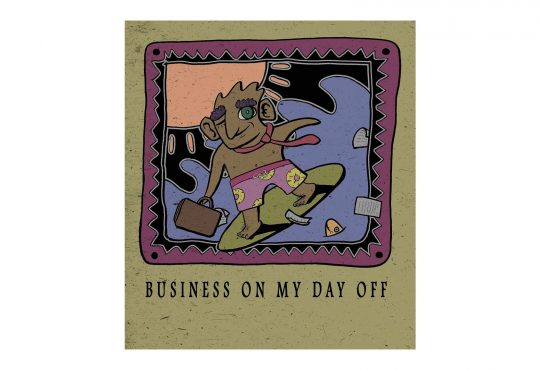Ubiquitous They provided their audience with some much-needed comic relief and an escape from the stresses of student life as they energetically performed their bi-annual sketch comedy show on Friday and Saturday, March 29 and 30.
Comedy sketch shows are composed of several short scenes, typically under 10 minutes long, that explore a certain concept, event or situation. Each sketch was student-written, directed and performed. While the title of the show was You. Are. A. Machine—a line from one of the sketches—the show covered myriad topics, from bringing home the wrong baby to religion to Groundhog Day.
Performers fought with banana guns, sung ballads and broke out suddenly in surprisingly advanced choreographed dance. The actors took advantage of the imagination of the audience and their own theatrical power to transform various colors of blankets into Gandalf’s cloak, Buddha’s kasaya and Jesus’ robes. Rausch Auditorium was filled with audience members laughing cathartically and whole-heartedly.
Ubiquitous They was originally founded in 2003 as a radio show. Nathan Little, the co-leader of Ubiquitous They Improv, said that the name of the organization originates from its time as a radio show because “we were ubiquitous on the airwaves.”
Later, the group evolved to perform sketch and improv. Little said that although the improv aspect of Ubiquitous They is perhaps more visible than the sketch aspect because improv is done weekly, UT sketch, led by Sarah McKinley and Jeff Nickels, is a huge part of the program.
Little described the process of planning a sketch show as very natural: “We do not approach any show with a goal,” he said. This semester, they began with about 60 sketches, written by members of the sketch team, which they narrowed down to about 16 that were actually performed in the show.
The sketches are initially written and then developed through the collaboration and improvisation by the members participating in them. “Approaching the show like this allows us to produce a very high quality product. Often, we find that themes or motifs emerge in the sketches we have selected,” Little said.
The theme of mixing reality with fantasy seemed to run throughout the show, especially in the skit entitled “An Unexpected Partay,” in which scenes from The Hobbit are rewritten into the life of an average man about to propose to his girlfriend. In subsequent skits, whenever characters seemed to be in a tricky situation, they were rescued just in time by the giant Eagles from Middle Earth.
Little said that the common threads that run throughout the different skits in a show are “not usually purposeful, and is just how comedy makes connections, but when we find reoccurring scenarios we do try to play them up.”
Shenanigans aside, Little spoke of the importance of comedy in addressing controversial issues. “It makes handling taboos easier and can strip scary issues of their power,” he said. “Good comedy is naturally just; it attacks the powerful and turns stigmas and norms on their head.”
Little acknowledged that comedy can be abused, and that it can silence important discussions, but he pointed out that the nature of comedy resists prejudice and injustice.
“Since mischievousness is such an important part of comedy it can’t be used to defend the corrupt or immoral for very long—true comedy grows restless and impatient under such constraints,” he said.

